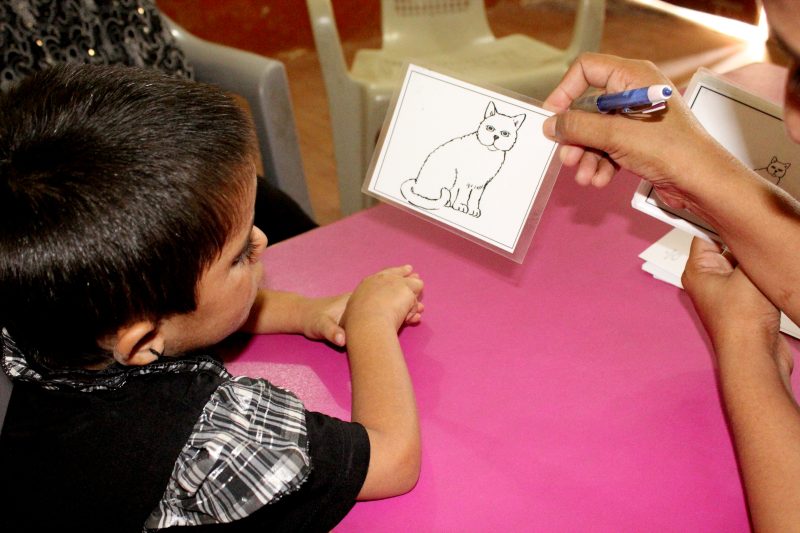
The SCALE-8 project in Pakistan examines the impact of early nutrition and stimulation interventions on school-age children.
SCALE-8 is a longitudinal study that looks at how early stimulation of children in rural Pakistan may affect development, learning and behaviour when they reach 8 years of age. The study is a longitudinal follow up study of a cohort of children who were enrolled in an early stimulation and nutrition intervention trial in the first 2 years of life.
“The early stimulation intervention had significant benefits on children´s cognitive, language and motor development at 2 years of age. In SCALE-8, we would like to learn whether the exposure to these early interventions has had any benefits to child development, learning and behaviour at age 8 years. “We want to investigate what factors contribute to any sustained impacts of early interventions, as well as factors that might mitigate the earlier benefits to children´s development,” says Muneera A. Rasheed, PI of the project.
Protect children against developmental risks
More than 250 million children living in low- and middle-income countries are unable to achieve their development potential due to biological, psychosocial and environmental risks. These risks include inadequate stimulation, malnutrition, infectious diseases, maternal depression and societal violence.
“These risks are particularly harmful in the first 2 to 3 years of life, when the brain is developing rapidly and establishing pathways for healthy sensory-motor, cognitive-language and social-emotional development,” says Aisha K. Yousafzai, co-PI of SCALE-8. “We can protect children against these risks and support children´s healthy development by providing interventions to improve health, nutrition and stimulation in these early years.”
A unique opportunity
In the last 30 years, a consistent body of evidence has demonstrated the effectiveness of early stimulation interventions on children´s early cognition. Only one study from a low- and middle-income country, Jamaica, followed an early stimulation intervention cohort into adulthood. SCALE-8 provides an important opportunity to add to the evidence of the effect of early interventions later in life.
“It is critical to gain better understanding of impact of early stimulation interventions on the life course for children growing up in highly impoverished settings and to identify how to strengthen early interventions or provide booster interventions at other strategic points in the child´s life,” says Rasheed.
“Given the growth of evidence on brain and behaviour development, there is an opportunity to identify constructs that can help us better understand child development more comprehensively and its potential impact on adult health, learning and behaviour,” Yousafzai adds.
- CISMAC: Centre for Intervention Science in Maternal and Child Health.
- New research centre opened 15 October 2013 at UiB’s Centre for International Health.
- Professor Halvor Sommerfelt heads the centre.
- The Centre of Excellence (SFF) programme was established by the Research Council of Norway to establish time-limited research centres characterised by focused, long-term research efforts of a high international calibre.
- CISMAC will receive NOK 17.5 million from the Research Council a year for the next ten-year period.
- UiB will provide annual support of NOK 14 million for the next ten years.
- CISMAC got the SFF status in 2012, one of 13 recipients among 139 applicants.
- CISMAC’s goal is to prevent and reduce the mortality rate of mothers and children in developing countries.
- The new centre will collaborate closely with research institutions in Ethiopia, India, Nepal, South Africa, Uganda and Zambia.
- CISMAC work with partner institutions such as the Bill & Melinda Gates Foundation, the World Health Organisation (WHO), UNICEF, the Chr. Michelsen Institute and the Norwegian Institute of Public Health.
